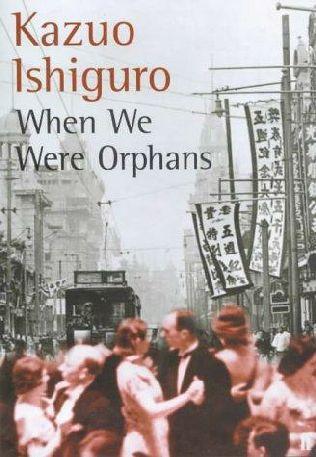
When We Were Orphans
کتاب های مرتبط
- اطلاعات
- نقد و بررسی
- دیدگاه کاربران
نقد و بررسی

September 4, 2000
Despite some contrived events and a tendency to rework the characterizations and themes of his previous books, Ishiguro's latest novel triumphs with the seductiveness of his prose and his ability to invigorate shadowy events with sinister implications. Like all of Ishiguro's protagonists, the narrator, here a recent Cambridge graduate named Christopher Banks, is an emotionally detached man who hides his real feelings from himself and who passively endures being trapped in nightmarish settings that give him "a grave foreboding." Like the hero of The Unconsoled, Christopher is bewildered by "the assumption shared by everyone... that it was somehow my sole responsibility to resolve the crisis." The crisis here is nothing less than averting WWII, which shares priority in Christopher's mind with the disappearance of his parents in Shanghai in the early 1900s, when he was nine years old. Christopher is sent to school in England, where he first formulates his dream of becoming a famous detective, an objective he achieves at a young age. Though he is convinced that his parents are still alive and that he can find them, he doesn't return to Shanghai until 1937, when he is in his mid 30s. It's obvious to the reader that Christopher deludes himself about many things, such as his conviction that when he "roots out evil," he is "cleansing the world of wickedness." This inclination toward grandiosity is a direct result of Christopher's sense of powerlessness as an orphan. While he is unaware of the connection, he is drawn to mercurial Sarah Hemmings, also orphaned in childhood. Ishiguro again conjures time and place with precise detail, evoking both the exotic atmosphere of prewar Shanghai, festering with the contrast between the arrogant residents of the International Settlement and the Chinese living in squalid slums and supplied with opium by foreign merchants, and class-conscious England, in which one's "connections" depend on family lineage. While the novel is mainly an introspective account of the protagonist's emotional dislocation, Ishiguro shows a new mastery of narrative tension, notably with Christopher's Kafkaesque experience during the Japanese invasion. In the end, Christopher understands that his vision of reality was distorted, and that his lifelong mission, "chasing through long years the shadows of vanished parents," was the inescapable fate of one caught in the toils of historical turbulence. 75,000 first printing.

August 9, 2000
Atmosphere, historical detail, suspense: Ishiguro's new book has it all, and if the parts finally don't add up, the author should still be credited with providing another great read. He should also be credited with originality, for though he investigates the polarities of insider-outsider, English-foreign, as he has done before (e.g., The Remains of the Day, The Unconsoled), he is hardly writing the same book again and again. Here, Christopher Banks is an Englishman born in early 20th-century Shanghai whose parents disappear mysteriously when he is nine. He is escorted to England, grows up to be a famed detective, and returns to Shanghai, convinced that his parents are still alive and that he must find them. The reader is less convinced that Banks is a real detective and wonder how he can entertain the romantic notion that his parents have been held hostage in Shanghai for decades, but the truth behind their disappearance comes as a satisfying surprise. And the writing is just wonderful, at once rich and taut. More writers should take style lessons from Ishiguro. For most collections. [Previewed in Prepub Alert, LJ 5/1/00.]--Barbara Hoffert, "Library Journal"
Copyright 2000 Library Journal, LLC Used with permission.

July 1, 2000
Ishiguro follows the graceful and well-received novels "Remains of the Day" (1989) and "The Unconsoled" (1995) with a limpidly written, subtly complex novel set in two very different parts of the world in the 1930s. As the story opens, Englishman Christopher Banks is fulfilling his life's ambition to become a private detective. Christopher was born in Shanghai, China, and when his parents disappeared early in his boyhood, he went to live in England even as the best detectives in Shanghai continued trying to find his mother and father. Once in England, Christopher's pursuit of his goal to become a detective has a certain inevitability about it, as does his eventual return to Shanghai to try his own hand at discovering the whereabouts of his parents. The China he returns to is in the midst of civil conflict between the adherents of the Nationalist Party and the followers of the Communist Party and is also contending with the invasion of the Japanese army. Christopher reconnects with his best friend Akira, but more importantly, he also discovers the truth about what happened to his parents--specifically, the startling knowledge about the source of his financial support during his years in England. This is a compelling novel that artfully depicts certain specific political and cultural clashes as a backdrop to exploring the conflict inherent in any individual's pursuit of freedom and identity. Serious fiction readers will both enjoy and admire Ishiguro's subtle work. ((Reviewed July 2000))(Reprinted with permission of Booklist, copyright 2000, American Library Association.)

























دیدگاه کاربران